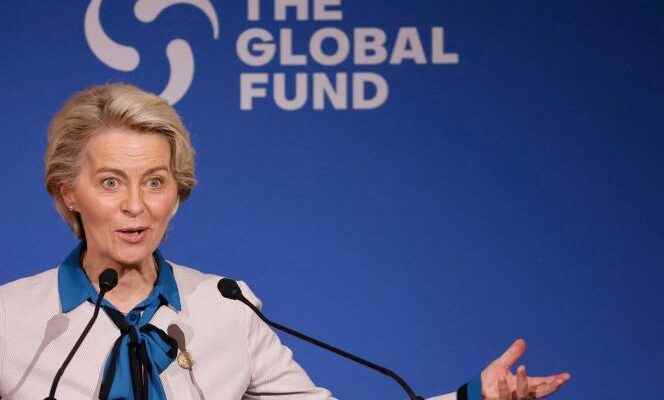Since the start of the war in Ukraine, Vladimir Putin has accused the Europeans of starving the world with their sanctions against Russia. For months, the Twenty-Seven have been trying to convince Africa, Asia and South America that this is not the case. But this summer, the Commission reluctantly gave arguments to the Kremlin by complicating the export of fertilizers and Russian wheat. The case finally settled on September 19, after more than a month and a half during which the community executive seemed to waver.
A little backtracking is needed to better understand how this story unfolded: in July, the EU-27 discussed a seventh package of sanctions, which should supplement the previous six and reduce the possibilities of circumvention. While in Africa, in particular, but also, to a lesser extent, in the UN, they are accused of endangering world food security with their restrictive measures, they are also keen to remove all ambiguities relating to the export of Russian agri-food goods. These products are not subject to sanctions, but the situation is less clear if we look at maritime transport, the insurance sector or the banking system.
At the same time, negotiations between Moscow and kyiv are being held, under the aegis of the UN and with the intermediary of Ankara, to allow Ukrainian cereals blocked for months in the ports of the Black Sea to be transported to other lands. The Kremlin demands, in this context, that all barriers to the export of its wheat and especially its fertilizers be lifted.
Secure maritime corridors
On July 21, a community regulation is published. The Twenty-Seven undertake to “Avoid any measure likely to be a source of food insecurity anywhere in the world” and claim that” none “ sanction “does not in any way target trade in agricultural and food products, including wheat and fertilizers, between third countries and Russia”. The following day, in Istanbul, in the presence of the UN Secretary General, Antonio Guterres, and the Turkish President, Recep Tayyip Erdogan, Russian and Ukrainian representatives signed an agreement which made it possible to relaunch Ukrainian grain exports by setting up secure maritime corridors.
Doom! On August 10, a communication from the Commission collided with this fine choreography and threatened the edifice that was so difficult to construct. On that day, the community executive publishes the ” Guidelines “ supposed to help the various European economic actors to apply the sanctions as well as possible. In essence, this document affirms that one cannot transport a product under sanction, nor ensure its transport, without specifying that this prohibition does not concern agri-food products.
You have 60.88% of this article left to read. The following is for subscribers only.
